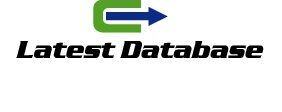ECommerce PPC management involves the planning, execution, and continuous optimization of pay-per-click advertising campaigns specifically for google shopping online stores. PPC ads can appear on search engines like Google and Bing, as well as social platforms like Facebook, Instagram, and YouTube.
For eCommerce brands, PPC campaigns are focused on getting potential customers to click through to product pages, view offers, and ultimately make a purchase. Effective PPC management helps balance ad spend with returns, ensuring that your campaigns generate a positive return on investment (ROI).
Why ecommerce PPC is essential for online retailers
When it comes to eCommerce, PPC advertising provides a direct way to reach customers who are actively searching for products like yours. Here’s why PPC should be an essential part of your marketing strategy:
Immediate visibility: Unlike SEO, which can take time to show results, PPC allows you to get your products in front of potential buyers immediately. This is especially important during competitive seasons like Black Friday or the holiday shopping period.
Targeted ads google shopping
PPC ads allow you to target specific demographics, behaviors, and search intents. This means your ads are more likely to reach people who are self employed database ready to buy, improving your conversion rate.
Budget control: With PPC, you only pay when someone clicks on your ad. This ensures that your ad spend is used effectively, and with proper management, you can set daily budgets to control your costs.
Scalable results: Whether you’re running a small or large-scale eCommerce business, PPC is scalable. You can start small and increase your budget as you see returns, allowing you to grow your sales without overstretching your budget.
Challenges of ecommerce PPC management
While PPC is a powerful tool for eCommerce, it’s not without challenges. Managing these challenges effectively can turn your PPC campaigns from good to great.
High competition: The eCommerce space is highly competitive, especially for popular products or brands. This can lead to higher CPCs (cost-per-click) and lower margins if not managed carefully.
Ad fatigue: Running the same ads for extended periods can cause them to become less effective as customers become blind to them. Regularly refreshing your ads is key to maintaining engagement.
Conversion tracking: Proper tracking is essential to understanding how your PPC campaigns are performing. Without accurate tracking, it’s impossible to know what’s working and what needs optimization.
Image
Ready to start scaling your business?
Let’s get started
Key elements of successful ecommerce PPC management
Effective PPC management for eCommerce goes beyond simply running ads. Here’s a breakdown of what successful PPC management entails:
1. keyword research and selection
Choosing the right keywords is essential for they work similarly to facebook ensuring your ads appear in front of the right audience. For eCommerce, focus on high-intent keywords that indicate a customer is ready to purchase. Use tools like Google’s Keyword Planner, Ahrefs, or SEMrush to find keywords that are relevant to your products and have high search volumes.
2. ad copy and creative optimization
Your ads need to grab google shopping
attention and convince users to click. For eCommerce, this means highlighting your product’s unique selling points (USPs) and using compelling visuals. A/B testing ad copy and creatives is critical to finding the best-performing combinations.
3. bid management and budgeting
PPC success often hinges on managing your america email list bids effectively. Bid too low, and your ads might not appear in competitive auctions; bid too high, and your CPC can eat into your profit margins. Setting the right bid strategy—whether manual or automated—ensures that your budget is being spent efficiently.
4. product feed optimization
For platforms like Google Shopping, ensuring that your product feed is accurate, detailed, and optimized is essential. Include relevant product descriptions, images,
5. retargeting and remarketing




